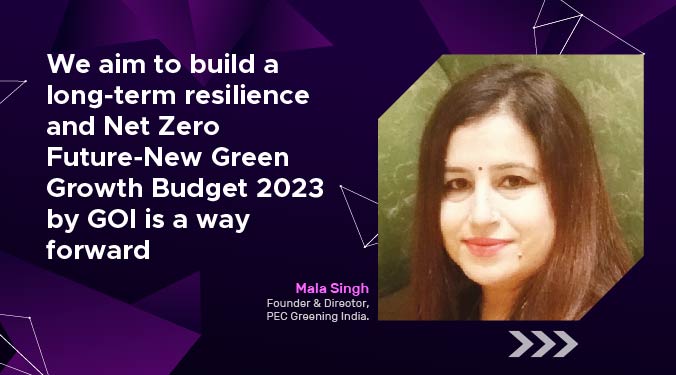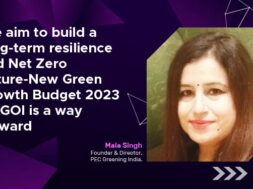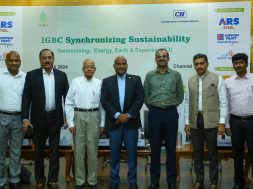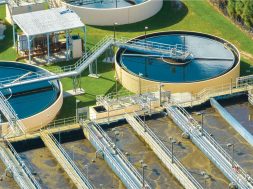We aim to build a long-term resilience & Net Zero Future

In an exclusive interaction, Dr. Mala Singh, Founder & Director of PEC Greening India, elaborates on the importance and benefits of green initiatives under Green Budget 2023.
Kindly share your opinion w.r.t need of decarbonisation and low carbon growth for developing and developed countries both.
Governments and companies worldwide are pledging to achieve net-zero emissions of greenhouse gases. Developed countries, together called the Global North are majorly responsible for the current climate crises. The per capita carbon emissions of developed countries are nearly 8 times more than the developing countries.
However it is very important for developing countries to participate in the fight against climate change. The main reason behind this is as the developing countries will grow their carbon emissions will skyrocket. India as a major developing country is leading the Global South towards sustainable development. In Cop 26 held in Glasgow, PM Modi pledged for India to become net zero by 2070. Developing countries and those with large fossil fuel sectors would likely have to spend the most on physical assets, relative to GDP, on decarbonisation and low-carbon growth.
Every country and region would spend to reduce emissions and develop low-emissions energy sources to power their economic growth. In developing regions, spending on energy and land would represent a substantially larger share of national GDP: about 10 percent in sub-Saharan Africa, India and some other Asian countries, and Latin America, the net zero 2050 scenario, India’s capital requirements would be 11 percent of GDP, compared to the global average of about 7.5 percent of GDP.
Much of that capital would be used to reduce the use of existing coal power and expand low-emissions electricity. To reduce the carbon intensity of the Indian economy – clean energy targets, building a resilient infrastructure and adoption of adequate climate strategies by companies and Govt. will play a very important role.

What are the green initiatives for green growth and energy transition in the newly launched Green Growth Budget 2023?
India’s budget 2023 has listed “Green Growth” as one of the seven priorities of this budget to achieve the set target of net zero carbon emissions by 2070. GOI has announced various green initiatives like Clean Energy, Green fuel, green farming, green mobility, green Buildings, and green equipment. Various types of capital investments were allocated for these initiatives to take it forward. I am very happy that the green building and sustainability consultant companies like us will also get more opportunities to contribute in the sustainable development of our country as well to boost green economy and jobs, especially through policy interventions by Govt. in promoting green buildings and green credit programmes.
According to the green budget, Govt. will incentivise environmentally sustainable and responsive actions by companies, individuals, and local bodies and also will help to mobilise resources for such actions. This really provides us a ray of hope to encourage our existing and new clients to contribute and invest in green business strategies. We require less effort to convince them to adopt green strategies; hence it’s a win-win situation for all.
How do you see the adoption of Net zero construction in India to address climate strategies in the Real Estate sector ?
The building sector in India is growing at a rapid pace and contributing significantly for the increase in demand of natural materials and resources like electricity, water and various other materials with high embodied energy for the construction sector like steel, cement, concrete etc. The increase in demand of these leads to depletion of natural resource availability, increase in Green House Gas (GHG) emissions and hence global warming.
Green buildings have demonstrated that about 25 to 30 percent reduction in energy consumption, 30 to 40 percent water savings with respect to the National baselines, can be achieved by implementing energy efficient practices and technologies. The advancements in the renewable energy technologies, policy interventions by the Government and the wider adoption of renewable energy sources have made the cost of renewable energy generation very competitive. In fact, buildings can become self-sufficient by generating their own energy requirements economically, through the use of onsite/ offsite renewable energy sources.
We in PEC, provide a special focus on resource efficiency and adoption of sustainable technologies from planning and design level by enabling our customers to establish green supply chain processes throughout their construction and development process. I feel each building must be designed, constructed and operated through a green building approach process only to achieve net zero emissions. Giving choice to adopt or not is not an appropriate solution in recent times to tackle climate issues.

Do we have any strategies available to adopt net zero Building approach in India?
Yes, we have green building certifications bodies in India, IGBC is one of the prominent ones and has a major stake in the green building footprints approx. 10 Billion sq ft as of now and still growing with the mission of multiplying it very soon considering the vision of “Sustainable Built Environment for All”. Green building approach leads the way to become net zero. Making a building green sets the tone of its net zero future.
Imagine, if all new and existing buildings in India have a mandate to become green, the dream of net zero future will become a reality, in addition to those other green initiatives of GOI, s policies under New Green budget portfolio will take the way forward at macro level like adoption of green energy, green agriculture practices, green infrastructure etc. Indian green building council has various types of rating systems applicable to specific typologies, and IGBC net zero rating systems are also available to adopt net zero energy, net zero water, net zero waste and net zero carbon approach.
Many companies are already adopting these rating systems for their new and existing building facilities. Majority of SDG goals are in line with these rating systems helping
companies to meet the framework of their ESG policies.
121
Cookie Consent
We use cookies to personalize your experience. By continuing to visit this website you agree to our Terms & Conditions, Privacy Policy and Cookie Policy.










